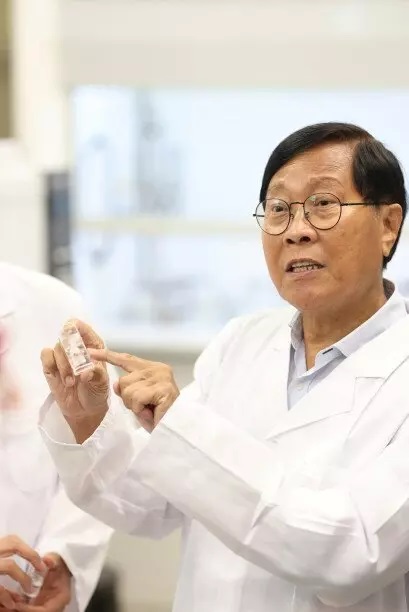Joint study by Professor Rudolf Wu and other researchers discovers new way to detect radioactivity in oceans
A research project conducted by Professor Rudolf Wu Shiu-sun of the Department of Science and Environmental Studies (SES) at FLASS and researchers from the City University of Hong Kong and The University of Hong Kong revealed that “Artificial Mussels” (AMs) are able to effectively measure radionuclides in water at very low environmental concentrations. This technology is believed to be applicable as a reliable and effective solution for monitoring radioactive contamination around the world. Peer-reviewed research findings were published in the Journal of Marine Science and Engineering.
Akin to natural mussels, AMs invented over a decade ago by Professor Wu have a remarkable ability to soak up a variety of metals, and can be used to measure the concentration of metallic pollutants in the marine environment. As of today, AMs have been utilised in 29 countries around the world.
To address the problem of radioactive pollution in the ocean, Professor Wu and his team selected three radioactive substances (i.e. uranium, strontium and caesium), commonly found in nuclear waste and disposal, as research targets back in 2022. The research team then placed the AMs in seawater containing various concentrations of radionuclides, in an attempt to test the devices’ absorption and releasing abilities. Radionuclides refer to an atom with an unstable nucleus; that is. a radioactive nuclide, which releases radiation – typically as it decays.

Following a series of experiments, results showed that it only takes the AMs seven to eight weeks to complete the absorption process. After that, they release the radioactive substances upon returning to clean seawater, demonstrating that radionuclides absorbed by the device can provide a reliable estimate on the concentration and variations of these radionuclides in water. Unlike existing methods, using AMs does not require collecting hundreds of litres of seawater for concentration and analysis. It therefore saves tremendously on labour, time and costs for sampling and pre-treatment processes. The cost of each AM is just US$1 (approximately HK$8), making it viable for the long-term and large-scale monitoring of nuclear wastewater.
Pioneering the study, Professor Wu said, “The potential risks pose to human health include cancer, mutation and abnormal development. To protect environment health and public health, there is an urgent need to come up with a cost-effective way to regularly monitor heavy metals and radionuclides in our aquatic environment. Our study showed that AMs can resolve the difficulties and limitations presented by existing detection methods. The device can play a role in safeguarding environmental and food safety, as it offers regulatory authorities around the world a practical and cost-effective way to monitor radionuclides in waters.”
Professor Rudolf Wu Shiu-sun is an Advisor (Environmental Science) to SES, and is ranked the top 1% scholar in his field (Essential Science Indicators). His research primarily focuses on the responses of marine animals and ecosystems to environmental stresses (especially hypoxia, xenobiotics and endocrine disrupting chemicals).
To read the original publication, please click here.
Slides and Demo video: Link

